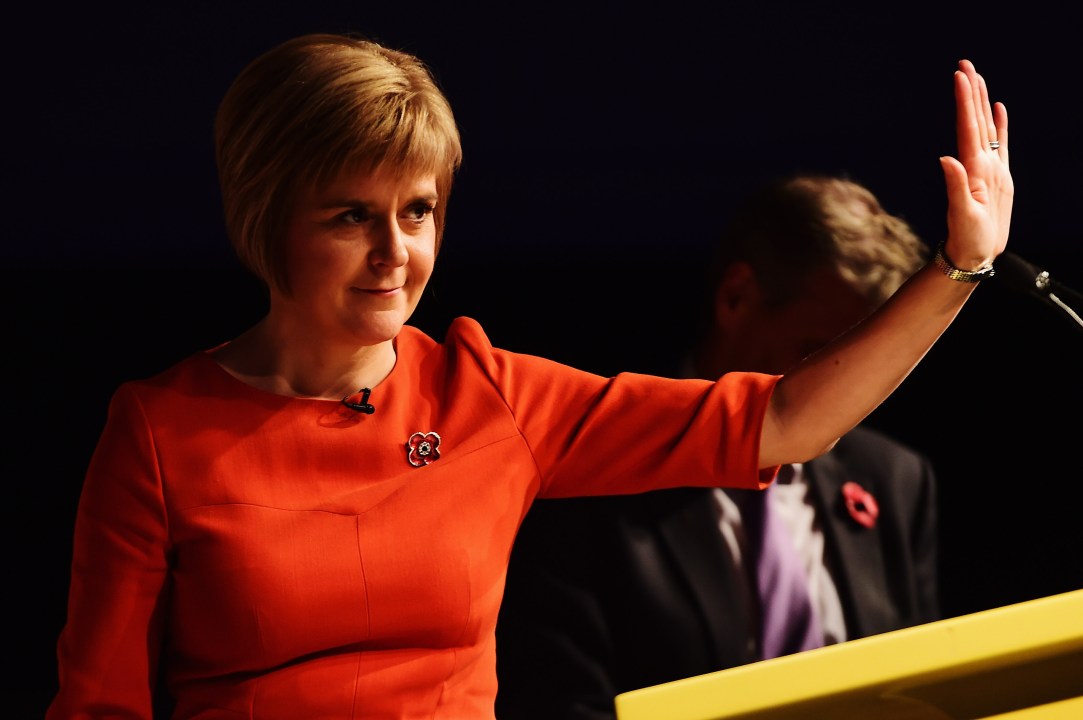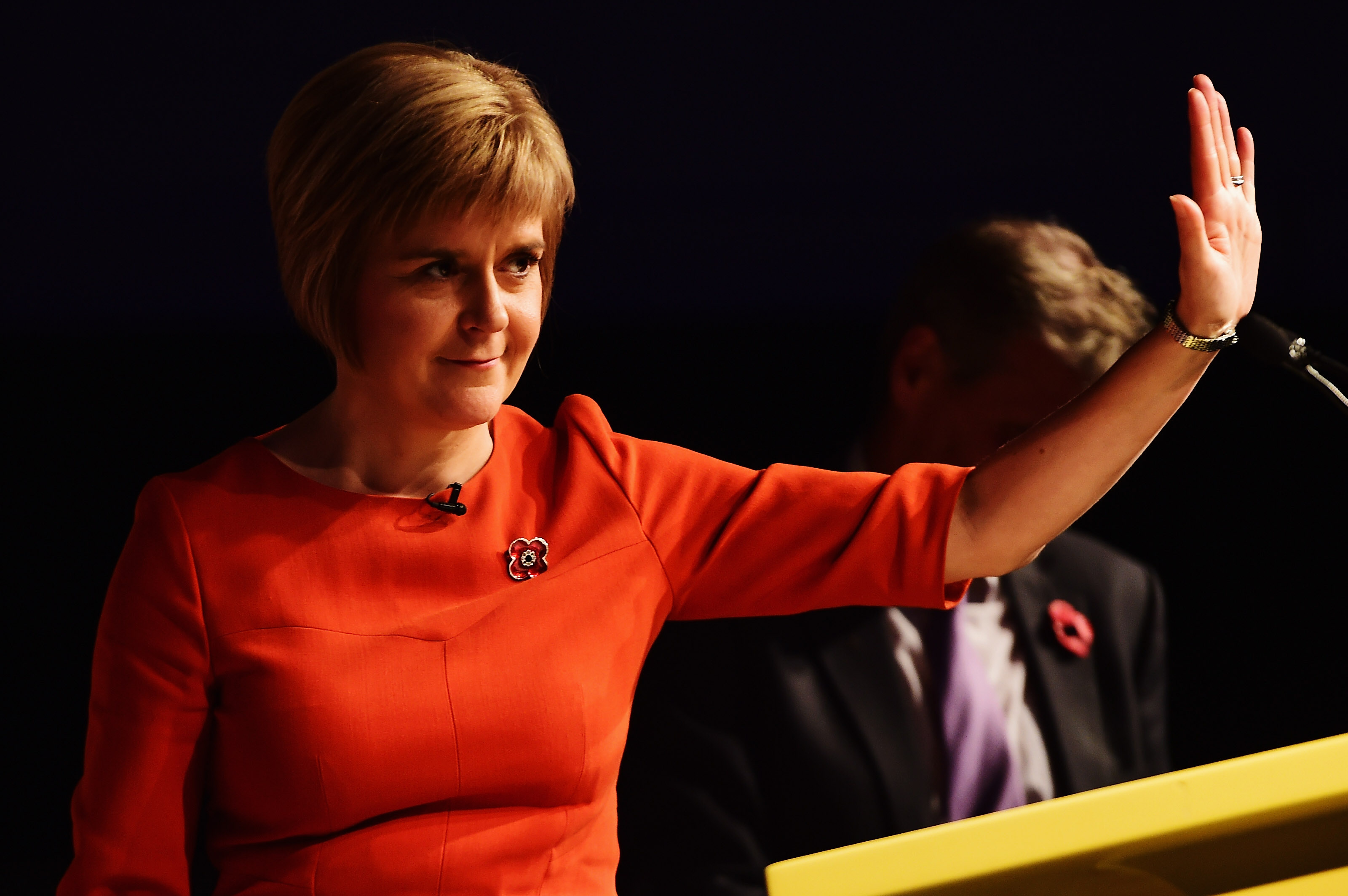The thing about faith is that, in the end, it’s unfalsifiable. You either have it or you don’t. But even within the community of the faithful there must be room for doubt. Indeed it’s the doubt that often proves the faith.
The late Neil MacCormick (praise be upon him, etc), once suggested there were two kinds of Scottish nationalist. The existential, come-what-may, nationalist and the utilitarian, evidence-weighing, nationalist. It was, and remains, a cute distinction.
Unfortunately, for the most part, it is also bogus. A man – or, indeed, a woman – may start as a utilitarian nationalist but by the end of his cost-benefit analysis he is likely to have become an existential nationalist. If the facts change, his mind would not. The ballyhooed journey only goes in one direction and there’s only rarely a way back.
That’s fine and it should be noted that there are, of course, Unionists for whom the preservation of the Union – of their other country – is a faith-based proposition impervious to calculator-based analysis too. Perhaps one in five Scots fit into this category.
But faith swallows many contradictions and everything and anything can be justified if only it advances the movement by as little as a single step. Thus, for instance, the SNP is implacably opposed to nuclear weapons being based on Scottish territory but not, it should be noted, opposed to being protected by those nuclear weapons.
Of course the party’s decision to endorse NATO membership was a matter of politics more than security. It closed down a problem or applied a tourniquet to a wound that would otherwise have been exploited by the Better Together campaign. Move along now, nothing to see here.
Similarly, the insistence that, after independence, there would be a currency union with the rump UK and Scotland would continue to use the pound, backed by the Bank of England, was the most politically-expedient option drawn from a list of unappetising choices. It might even have been the best choice even though it was also, it might be remembered, the SNP’s third currency policy in 25 years.
Again, however, the leadership’s choices were backed by the movement with scarcely a murmur of dissent. Where there was dissent it was couched in terms suggesting this could be fixed after independence. The vastly more important thing was to get to independence first.
And that, you know, is fine. I understand that’s how the nationalist movement works. I also understand that acknowledging the certain difficulties that would follow independence was unlikely to be a vote-winning admission even if you also argued, not unreasonably, that in the long-term there’s no reason why Scotland could not be a perfectly respectable, sustainable, prosperous, independent country. Because of course it could be. As, mind you, it is a respectable, sustainable, prosperous part of an independent country right now.
But in a sense these contradictions do not matter at all because, in the end, faith is personal. My vision of a better Scotland after independence is not the same as your vision and your vision is entirely different, and perhaps incompatible, with his. It will all be sorted out, decided, after independence. Until then we are on the same team.
Which is why, as I say in this week’s edition of the magazine, the modern SNP is a broad and fiercely evangelical church. For some reason this seems to have upset some nationalists. But the point is not a complicated one: faith is always mysterious to those who do not share it. (This is one reason why Yes voters find it so hard to understand No voters and why they, generally-speaking, get No voters wrong.)
Politics is often a low and scurrilous business but there is something breathtaking about a party arguing, in all apparent seriousness, that you could, as some kind of consolation prize for losing the referendum, have full fiscal autonomy within the UK while also maintaining the Barnett Formula. (I have no great ideological opposition to the former and, by the way, Barnett should be amended.) Moreover, it takes considerable reserves of chutzpah to complain about Tory/Labour austerity while also advocating a policy that would guarantee far greater austerity than that which you complain of.
And to do this without any real debate, far less any real dissent, well that’s quite an achievement too.
The best argument for independence is also the simplest. That Scotland is its own distinct country and it should be governed in just the same way that almost every other distinct country is governed. That is, as an independent state.
Plenty of people agree with that. But, of course, the UK is also its own distinct country and desiring to maintain it that way and with its current membership is neither dishonourable nor disreputable.
The problem with the Better Together campaign was that, for poll-based reasons, they built their campaign for the Union on strictly utilitarian grounds. This implicitly conceded the attractiveness of independence subject to the cost-benefit proviso that all things would be equal. And, when considered in those terms, I suspect there has always been a large and natural constituency for independence. If all things are equal.
Better Together had to argue that, at the very least, those things were not equal. The time for independence was not, they implied, ripe. Not yet at any rate.
But what if the numbers changed? What if we produced new and different (and better!) numbers? Well, then things might be different. And so they are. Moreover, even Better Together does not mean Rubbish Apart.
The Yes campaign was built on hope and a thirst for change even if it also relied on, in my view, a hopelessly optimistic, even mendacious, economic prospectus. Nevertheless, it said to people that Yes, a different, better way is possible. Yes, together, we can do this. By default, then, Better Together was left to piss in everyone’s tea arguing that, actually, even if we could we probably shouldn’t. It was not a victory to be savoured.
I have no doubt that, like most other senior members of the SNP, Nicola Sturgeon considers herself a “utilitarian” nationalist. That is, she things independence would be better for most Scots. Her view is not irrational; it is deeply-held. But it was spawned, I think, by her existential nationalism. I find it vanishingly difficult to imagine circumstances in which Ms Sturgeon’s mind could be changed by facts or figures or anything else.
That’s fine too. Her nationalism, which she has nurtured since before she was old enough to vote, is elemental. It is also unfalsifiable. Which is why it really is a kind of faith. And also, of course, why it is so mysterious to the many people who do not share her assumptions.
Few people like their faith being questioned, of course, and such questioning is doubly-felt in Scotland. Consider this chart*:
That helps explain, I think, some of the hysteria we endure in Scotland these days. Criticising the SNP is not merely a question of politics, it is an assault upon a deeply-treasured part of a person’s identity. And because the party has so successfully conflated party and country it is an assault on Scotland too. How dare these people!
The SNP, you see, is the will of the people made flesh. To doubt the party is to out yourself as an apostate. Worse still, it is offensive. And, my word, if there’s one thing Scots are especially good at it is taking offence.
Never mind. All difficulties can be wished away. No doubt about that at all.
*Obviously this is a disreputable finding. The clue is in the name: British Election study. Because, obviously.









Comments